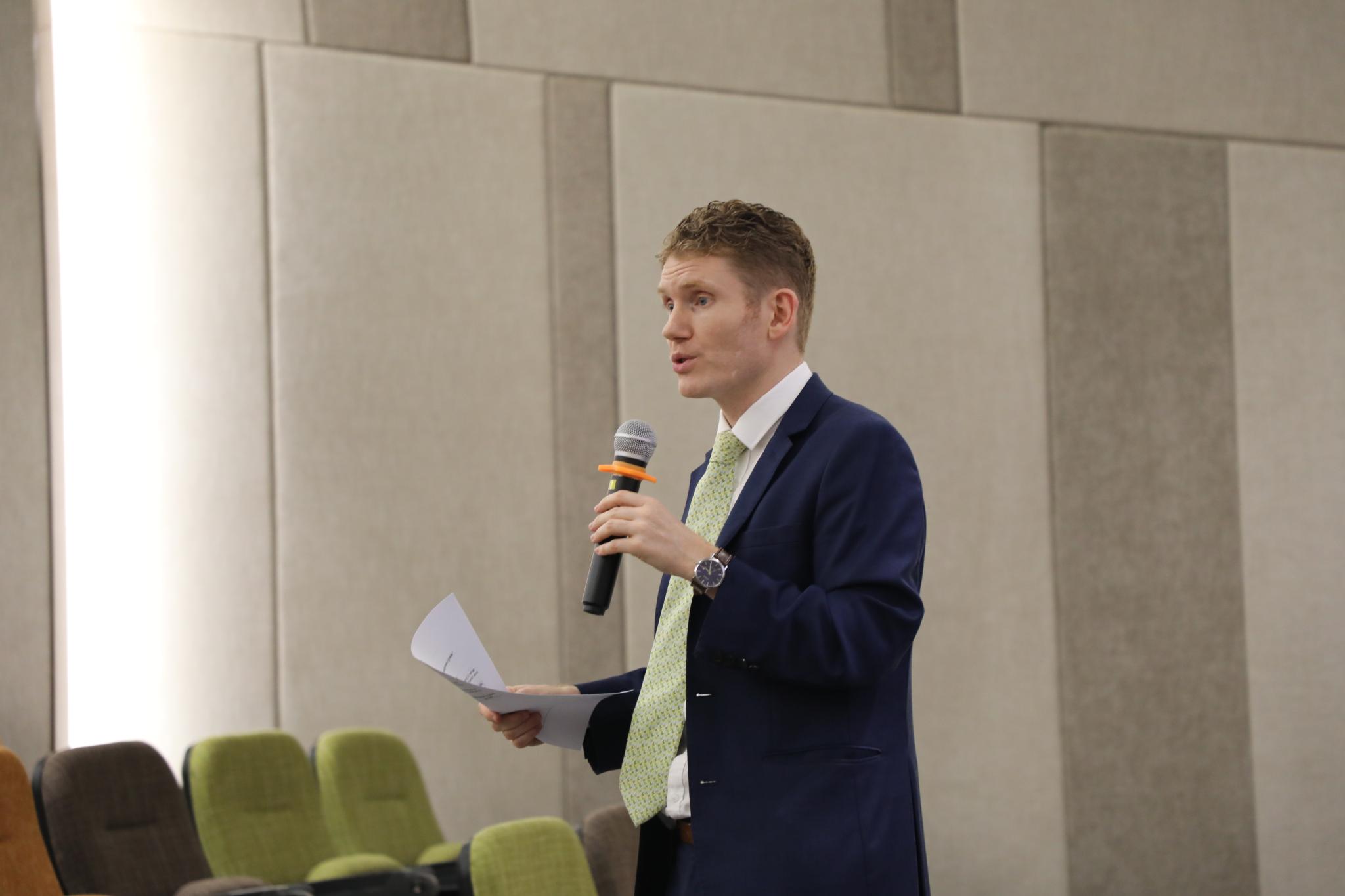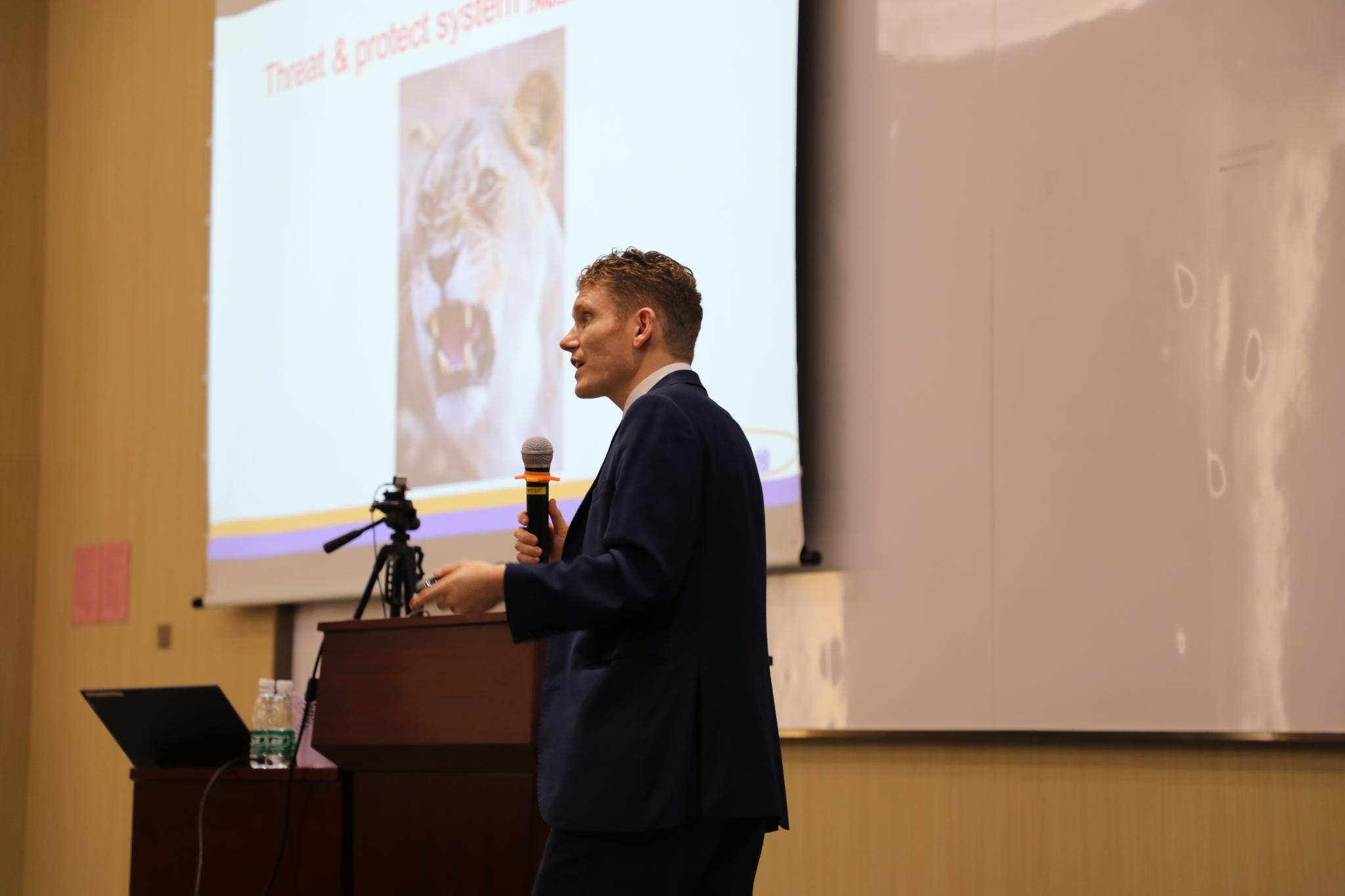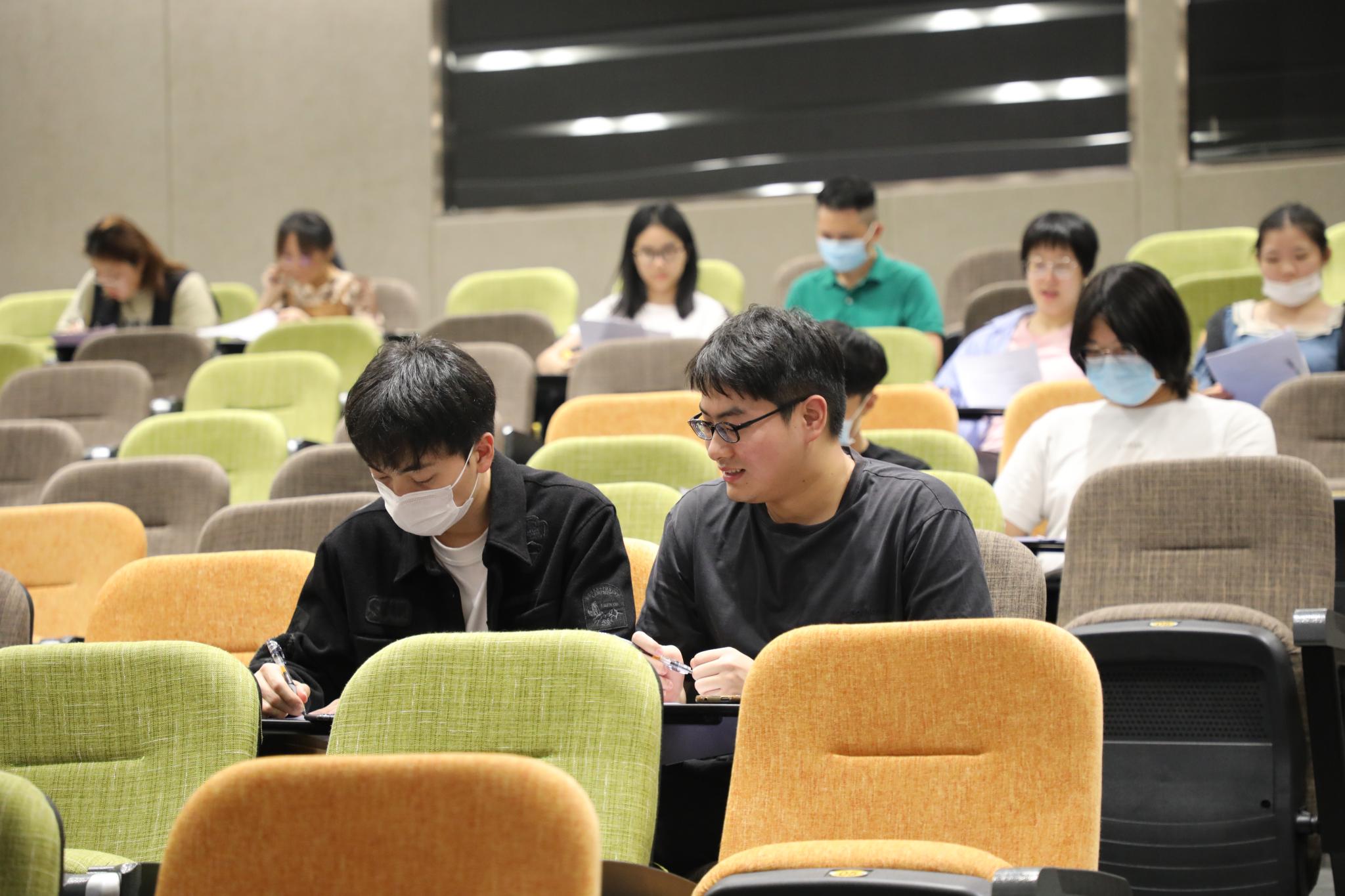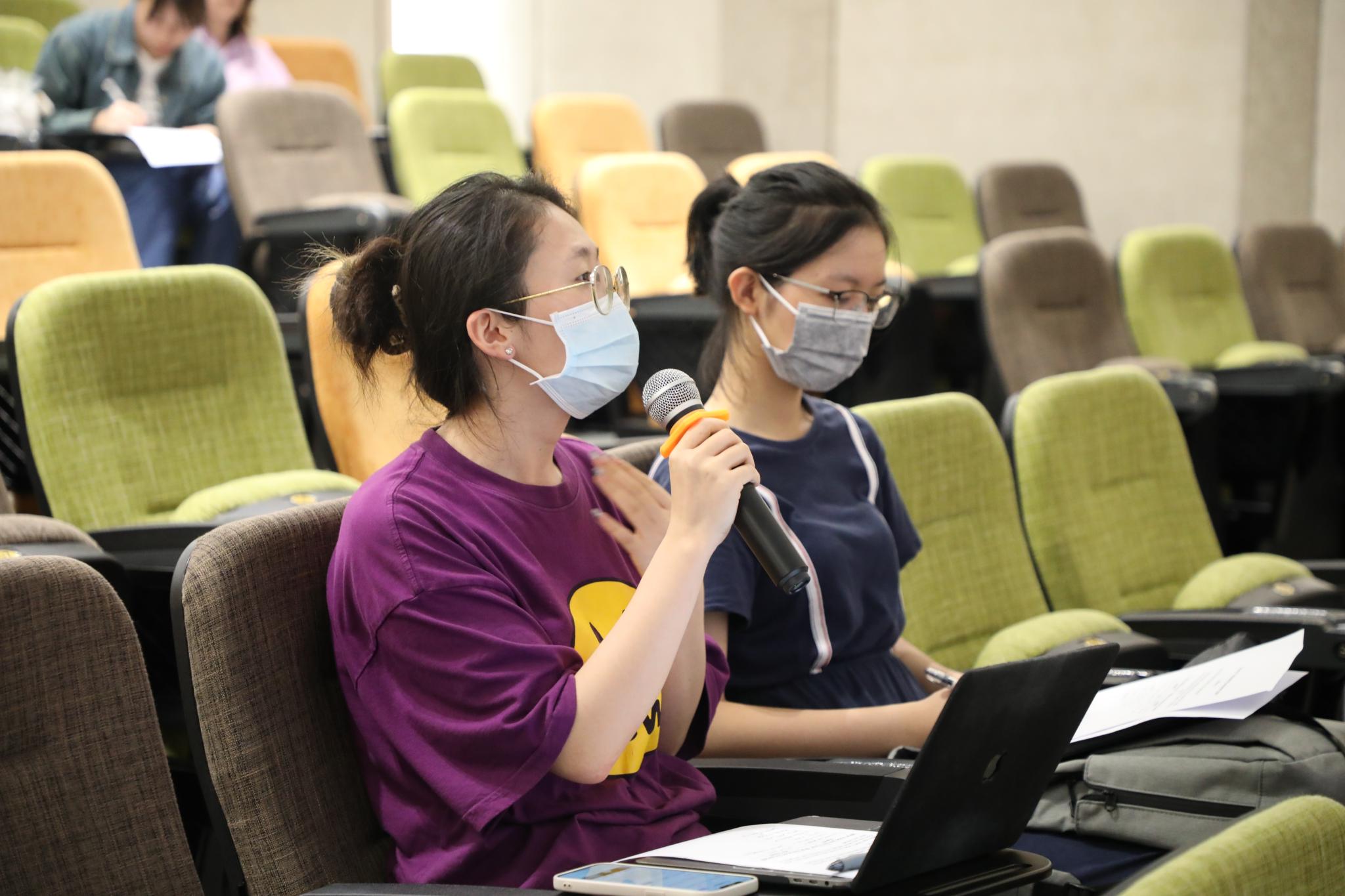
The Faculty of Business and Management collaborated with the Personal Growth and Counseling Center to host an interactive talk for the UIC community on November 16th entitled Perform Better Under Pressure in Exams, Presentations and Interview. How to harness the power of kindness for success and wellbeing.
The speaker, Sebastian Boo, is a lecturer in FBM who has recently joined UIC from the UK where he spent over ten years at the London School of Economics and Political Science, LSE. Sebastian explained that one of his responsibilities at LSE was the wellbeing of students with disabilities, long term medical conditions and mental health conditions and that it was through his work supporting these students that he discovered the power of kindness focused approaches to supporting student wellbeing. Sebastian also spoke about the growing research around kindness in education, health care and management stating that both in our personal lives and in business “being kind is not just nice, it’s smart” as it solves problems and drives performance.


The talk begun by addressing the fact that whilst some stress can help students to work hard and perform well, too much excessive stress over long periods of time has a negative impact on the brain and therefore our ability to work well. Specifically in high-stakes situations such as exams, presentations and interviews, excessive stress can prevent us from performing at our very best. Therefore, being skilled at controlling our own stress levels gives us a significant advantage.
Sebastian provided a scientific framework for understanding how stress affects us. Human beings have three emotional regulations systems: a threat and danger detection system, a drive and motivation system and soothing calming system. Excessive stress is caused by overaction of the threat system which can be counteracted by the soothing system. When we are kind to others and ourselves we boost the soothing system, reduce the threat system and so experience less stress.
An interesting partner exercise gave the audience the opportunity to identify that often we find it hard to be kind to our own self. We can get better at self-kindness by changing the tone of voice which we use when we talk to ourselves in our own minds. Additional techniques the audience were able to try covered included taking a self-kindness break, mindfulness, sending oneself supportive messages, loving kindness meditation and breathing exercises.
In the last part of the talk Sebastian cited research and statistics from China and the West about the economic cost and the social cost caused by high levels of stress and mental illness. He argued there is a strong economic, social and ethical imperative to address the problem of stress and poor mental health by destigmatizing mental illness, providing education and training on wellbeing and addressing the ways in which organisations, communities and societies can better promote mental health.
The talk gave participants and opportunity to try seven different simple techniques to reduce their own stress levels and was an inspiring and motivating call to prioritise kindness.

